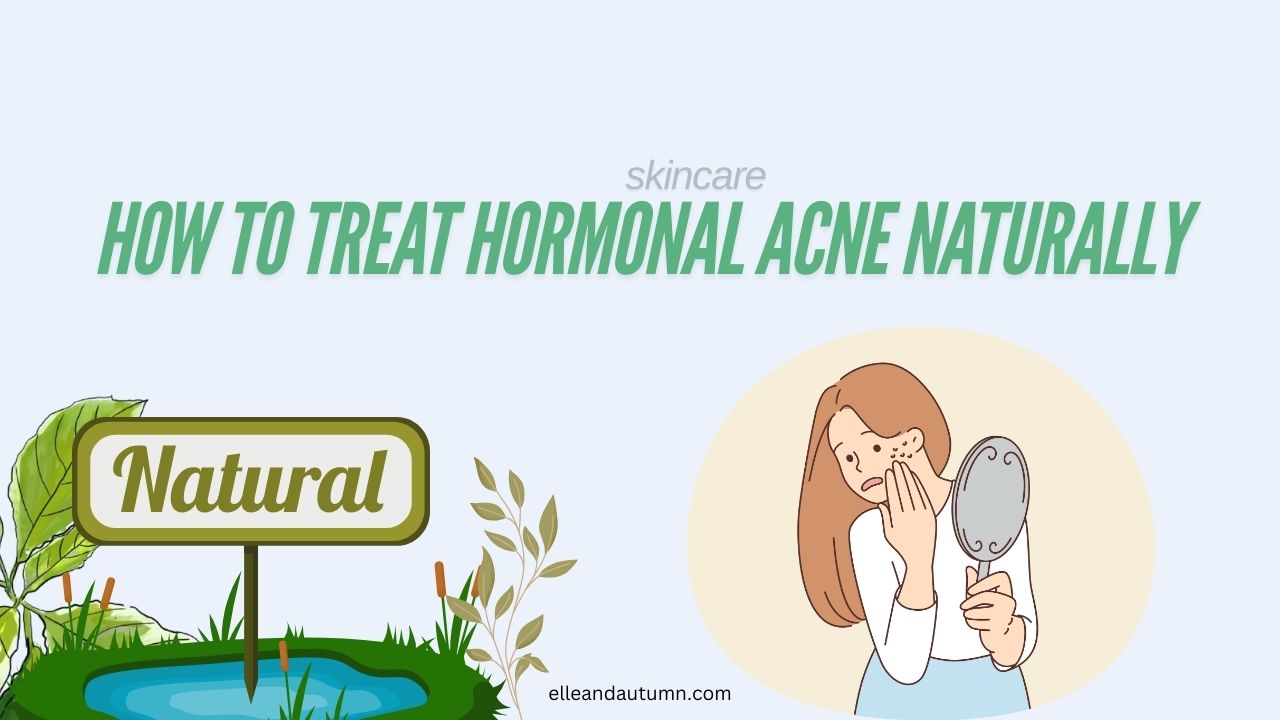How to Treat Hormonal Acne Naturally
Hormonal acne can be frustrating and difficult to manage, as it’s usually linked to hormonal fluctuations that occur during puberty, menstruation, pregnancy, and even stress. Unlike regular acne, hormonal acne often appears around the lower face, jawline, and chin. If you’re looking for natural ways to help reduce hormonal acne and prevent future breakouts, there are several lifestyle adjustments, natural treatments, and diet tips that can make a difference. Here’s a guide to understanding and treating hormonal acne in a gentle, effective way.
Understanding Hormonal Acne
Hormonal acne is triggered by changes in hormone levels, particularly androgens like testosterone, which can increase sebum (oil) production and lead to clogged pores. This type of acne can range from mild breakouts to painful cysts and is often resistant to traditional over-the-counter acne treatments.
If you’re interested in natural approaches, let’s dive into some easy, effective remedies and lifestyle adjustments that can support clearer skin.
1. Maintain a Balanced Diet
A healthy diet is one of the most powerful tools against hormonal acne. Certain foods can help regulate hormones, reduce inflammation, and support overall skin health.
- Avoid Dairy and Sugar: Dairy and refined sugars can increase insulin levels, which may lead to an increase in sebum production and clogged pores. Limiting milk, cheese, and sugary treats may reduce flare-ups.
- Add Omega-3 Fatty Acids: Foods high in omega-3s, like salmon, walnuts, and chia seeds, are anti-inflammatory and can help reduce redness and swelling in acne-prone areas.
- Increase Fiber Intake: Fiber-rich foods like vegetables, whole grains, and legumes help to balance blood sugar levels, which can reduce hormonal fluctuations that contribute to acne.
2. Herbal Teas for Hormonal Balance
Certain teas have properties that can help balance hormones naturally and reduce the severity of acne.
- Spearmint Tea: Drinking one to two cups of spearmint tea daily has been shown to help lower androgen levels, which can reduce acne.
- Green Tea: High in antioxidants, green tea can help reduce inflammation and lower sebum production. Drinking it regularly or applying it topically can improve acne-prone skin.
3. Natural Topical Treatments
Several natural remedies can help treat hormonal acne when applied to the skin. Here are a few that are gentle yet effective:
- Tea Tree Oil: Known for its antibacterial properties, tea tree oil can help fight acne-causing bacteria. Dilute it with a carrier oil, such as jojoba or almond oil, and apply it directly to blemishes.
- Aloe Vera: Aloe vera is soothing and anti-inflammatory, making it perfect for calming irritated skin. You can use fresh aloe vera gel from a plant or a high-quality aloe gel product.
- Apple Cider Vinegar: ACV helps balance the skin’s pH levels and reduces the growth of bacteria. Dilute it with water and use it as a toner to help manage oil and keep pores clear.
4. Exercise Regularly
Regular physical activity can have a positive effect on your skin by reducing stress levels, increasing blood flow, and promoting detoxification.
- Sweat it Out: Sweating during a workout can help open up pores, allowing your skin to release trapped dirt and toxins. Just be sure to cleanse your face after exercising to prevent pore-clogging.
- Stress Reduction: Physical activity lowers stress hormones like cortisol, which can prevent stress-induced hormonal breakouts. Exercise regularly, and try relaxing activities like yoga or meditation for added stress relief.
5. Optimize Your Skincare Routine
A good skincare routine can make a significant difference in managing hormonal acne.
- Gentle Cleansing: Use a gentle, sulfate-free cleanser twice daily to remove impurities and excess oil without stripping your skin.
- Non-Comedogenic Moisturizer: Look for moisturizers labeled as “non-comedogenic,” which won’t clog pores and can help balance the skin’s moisture levels.
- Weekly Exfoliation: Use a natural exfoliant once or twice a week to remove dead skin cells that can contribute to clogged pores. Avoid harsh scrubs, which can irritate and worsen acne.
6. Get Enough Sleep
Adequate sleep is essential for maintaining healthy skin, as it helps regulate stress hormones and allows the body to repair itself overnight. Aim for 7-9 hours of quality sleep each night to help prevent stress-induced hormonal imbalances.
- Establish a Routine: Going to bed and waking up at the same time every day helps regulate your internal clock, reducing stress and hormonal fluctuations.
- Avoid Blue Light Before Bed: Limit screen time before bed as blue light can interfere with sleep quality. Instead, try reading or practicing relaxation techniques.
7. Manage Stress Effectively
Stress can trigger hormonal imbalances and worsen acne, so finding effective ways to manage stress can support clearer skin.
- Mindfulness and Meditation: Practicing mindfulness, meditation, or deep breathing can help reduce stress levels and improve overall well-being.
- Limit Stimulants: Caffeine and other stimulants can exacerbate stress and contribute to hormonal fluctuations, so consider reducing your intake if you’re prone to acne breakouts.
8. Consider Natural Supplements
Some natural supplements can help balance hormones and support skin health.
- Zinc: Zinc is an essential mineral that helps regulate oil production and reduce inflammation. A daily zinc supplement can help manage acne symptoms in some people.
- Vitamin B6 and B5: These B vitamins can help reduce hormonal acne, especially around the time of menstruation, by supporting adrenal function and hormone regulation.
- Probiotics: A healthy gut can positively affect your skin, as a balanced microbiome reduces inflammation. Probiotics, either through food or supplements, can support gut health and reduce acne.
9. Hydrate and Stay Consistent
Hydration is key to maintaining clear skin, as it helps flush out toxins and keeps your skin cells healthy.
- Drink Plenty of Water: Aim for at least 8 glasses of water per day to keep your skin hydrated from the inside out.
- Consistency is Key: Hormonal acne can be stubborn, and results may take time. Be consistent with your routine and give natural treatments a few weeks to show effects.
Final Thoughts
Treating hormonal acne naturally requires a holistic approach, from balancing hormones and reducing stress to maintaining a simple and consistent skincare routine. While natural remedies and lifestyle changes can help manage hormonal acne, keep in mind that it may take time to see significant results. If your acne is severe or painful, consult a dermatologist who can provide personalized advice and guidance. By being consistent, patient, and mindful of your lifestyle, you can achieve healthier, clearer skin naturally.
Embrace these natural strategies, and let your skin benefit from the balanced, holistic care it deserves!

